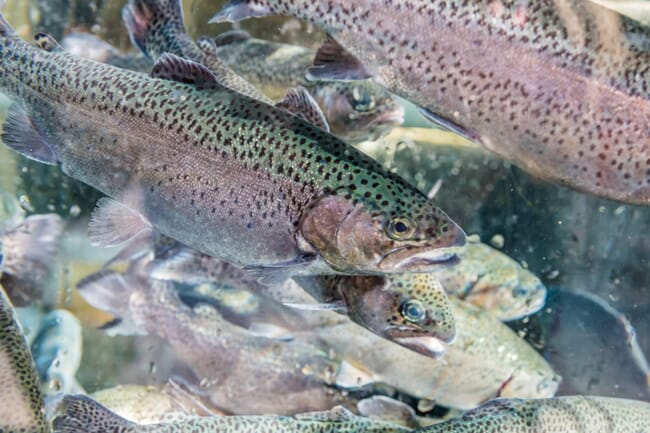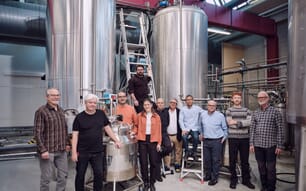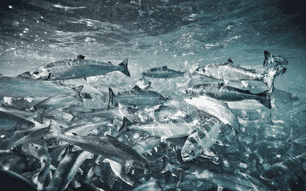The study, published in the journal Microbiome, illustrates the importance of understanding animals' “chronobiology” and how this can help maintain their health and welfare.

Keeping fish under constant light – often used by fish farms to enhance growth or control reproduction – disrupts these daily rhythms and leads to increased susceptibility to parasites.
Lead author Dr Amy Ellison, a lecturer at Bangor University’s School of Natural Sciences explains:
“Rainbow trout have daily or ‘circadian’ rhythms in their immune activity and these rhythms appear to shift the composition of the microbial communities which live on their skin over day-night cycles. These fish skin ‘microbiomes’ are a first line of defence against invading parasites and pathogens, so this could be very important for their health.”
“We found that raising fish under continuous light severely impacted the timings of their immune system and microbiomes. Worryingly, when infected with parasitic skin lice, fish under constant light were less able to rid themselves of infection.”
Dr Ellison and her colleagues learned that lice infections significantly alter the microbial communities present on trout skin. In this study, they noted increasing numbers of pathogenic bacteria.
Co-author Prof Jo Cable from Cardiff University School of Biosciences commented:
“This is the first study to look at the daily rhythms of fish microbiomes. There is increasing interest in the aquaculture industry to maintain ‘healthy’ microbiomes in farmed fish to improve their disease resistance. However, current farming practices could have unintended consequences for fish health.”

Co-author Dr David Wilcockson from Aberystwyth University Institute of Biological, Environmental and Rural Sciences added:
“Chronotherapies – the appropriate daily timing of vaccines and other treatments – is beginning to revolutionise human medicine. But this is yet to be applied to farmed animals. Our study raises the possibility similar approaches could be used to help maintain fish health and welfare on farms.”




